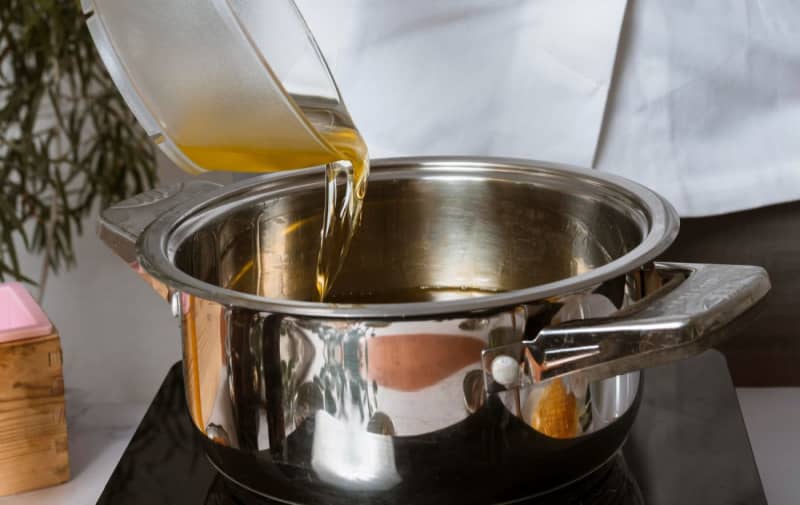
Cookware, especially stainless steel pans, is a combination of elegant appearance and durable construction. This makes such cookware capable of handling a wide range of culinary tasks. However, stainless steel has its characteristics and limitations.
Here are some foods that are better not to cook in stainless steel cookware, according to Real Simple.
Tomato sauce
Highly acidic foods and dishes, such as tomato sauce, can react with stainless steel (or, as it is sometimes called, inox) over time, leading to discoloration of the material.
Nickel and chromium can also leach out of stainless steel, depending on the condition of the pan or pot.
Therefore, for sauces made from tomatoes and tomato paste, it is better to use cookware that does not react with the ingredients, such as enameled, cast iron, or non-stick coated cookware.
Eggs
Eggs tend to stick firmly to stainless steel surfaces, especially if the pan is not properly heated and greased.
Using a non-stick skillet or a well-oiled cast iron skillet, which has been used before, is usually a better choice for cooking eggs.
Pancakes
When cooking pancakes on a stainless steel pan, especially thin, delicate ones, they can also stick to the surface and not flip well.
As with eggs, it is recommended to use a non-stick or cast iron skillet for making pancakes.
Steak
Although a stainless steel pan can withstand relatively high temperatures, for high-heat frying it is better to use a special grill pan or thick-walled non-stick cookware.
This will help achieve a crispy crust and better flavor, evenly cooking the meat. In addition, a steak cooked in suitable cookware leaves much fewer traces than a steak cooked on a stainless steel pan.
Fish
Although fish can be cooked in a stainless steel pan, delicate fillets can stick to the surface and fall apart when flipped.
To avoid unnecessary complications in cooking, it is better to cook fish in a cast iron skillet with a non-stick coating or well-oiled, rather than in stainless steel cookware.
Previously, we talked about how to clean glassware from buildup.


Post a Comment
0Comments